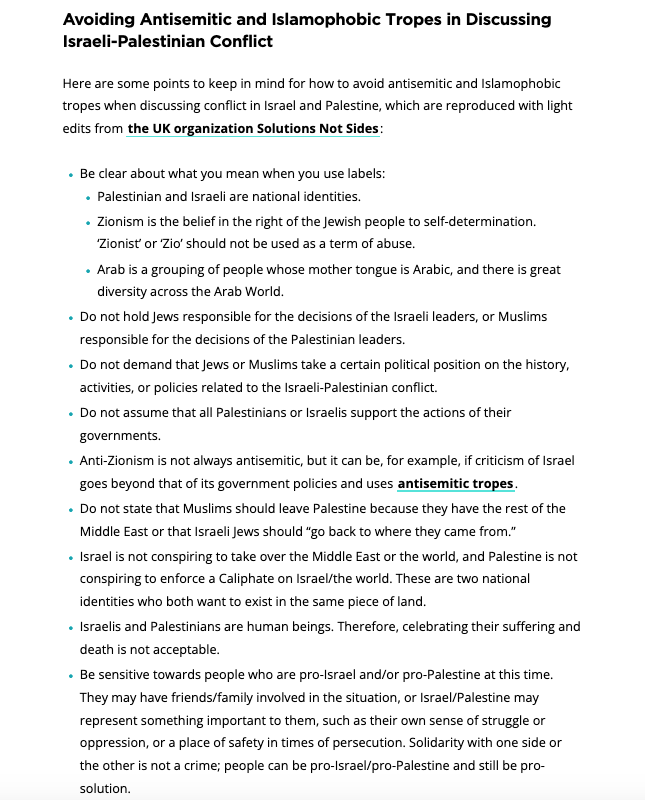Jewish Literary Links



Most Fridays the Practicing Writing blog shares writing and publishing resources, news, and reflections to peruse over the weekend. But it’s been an excruciating week for so many of us. And frankly, I’ve paid next-to-no attention to garden-variety news from the writing and publishing spheres.
On Wednesday, however, I received an email from Facing History and Ourselves, a Boston-based global nonprofit organization that I’ve admired for many years. The email introduced a “mini-lesson” titled “Processing Attacks in Israel and the Outbreak of War in the Region.”
The resource isn’t perfect. (What resource is?) But one of its segments impressed me as something that, though intended for educators and students, could be clarifying for writers as well, in our work and in the rest of our lives. It’s a section titled “Avoiding Antisemitic and Islamophobic Tropes in Discussing Israeli-Palestinian Conflict.”

These three always provide thoughtful discussion in their “For Heaven’s Sake” podcast.
But in their latest episode, they’ve outdone themselves.
(more…)The threat of the extreme right to the Jews and others is a bit like a Category 5 hurricane that is bearing down on you. You can see it coming, you can put the storm shutters up and it will still blow up your house. It will kill everyone inside, it will destroy everything—like people with masks and billy clubs and gear rampaging through the Capitol looking for legislators to kidnap and kill. The radical left—we need to see that for the threat that it is. The far left is more like climate change. The threat starts down here, and it slowly increases; some people don’t see it and other people deny it. They dismiss it, they think they can adapt to it. And suddenly, the temperature is up here—the environment that you live in is no longer hospitable in the way that it once was, and you get those kinds of Category 5 storms that can kill you. It’s more subtle and insidious but it’s also a threat. If you pay attention to what’s happening on college campuses, and the attacks on Zionists—you’ll have an anti-Israel speaker on campus and then there are swastikas on the Jewish fraternity. You’ll have a professor of psychology at George Washington University berating students in her class who are “Zionists,” and making all the Jewish students feel—and their grades reflect it—less than all the other students. She’s not asking them about whether they vote for Bibi Netanyahu. She’s not asking them about their opinion of Baruch Goldstein. She’s saying “all of you are a problem.” I’ve heard this from kids on campuses who say to me “I can go to Hillel now and then, but I really can’t be open about it because Hillel is part of the Israeli war machine.” That’s what’s portrayed on campus. And I’ve heard this from colleagues in newsrooms, “I can’t really talk about… People know I’m Jewish, but we can’t really address issues of anti-Semitism in a very open way. Because Israel makes it hard.
We can’t talk about anti-Semitism when Jews are getting beaten up in the streets here in the United States. I hear about it in other spheres. So it is not to say that Jews are looking at a new set of Nuremberg Laws. But when a world is created that encroaches upon your ability to show up as your whole self in a way that your peers do, when an environment calcifies where terms like “Zionist” or “globalist” become normalized as epithets—we know what that means. And we know where it goes.
—Jonathan Greenblatt, quoted in “The Good Fight” podcast.
